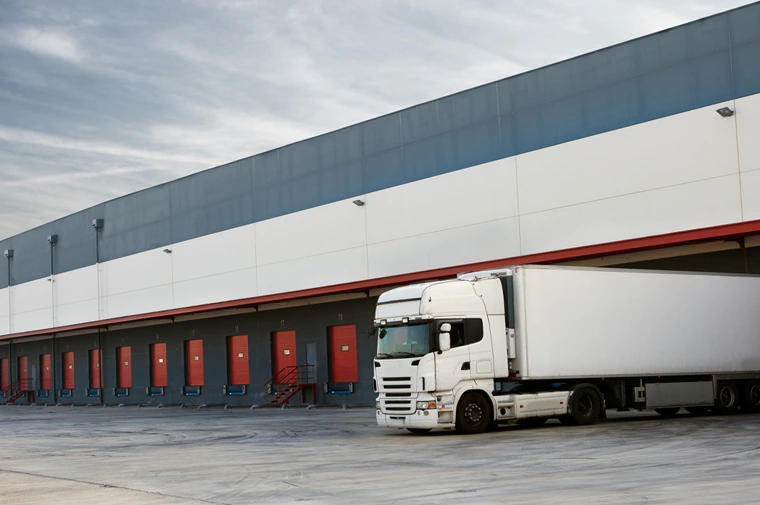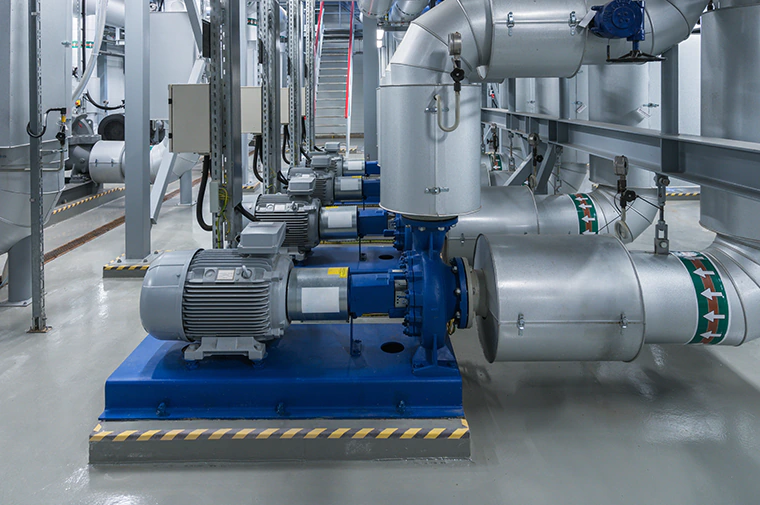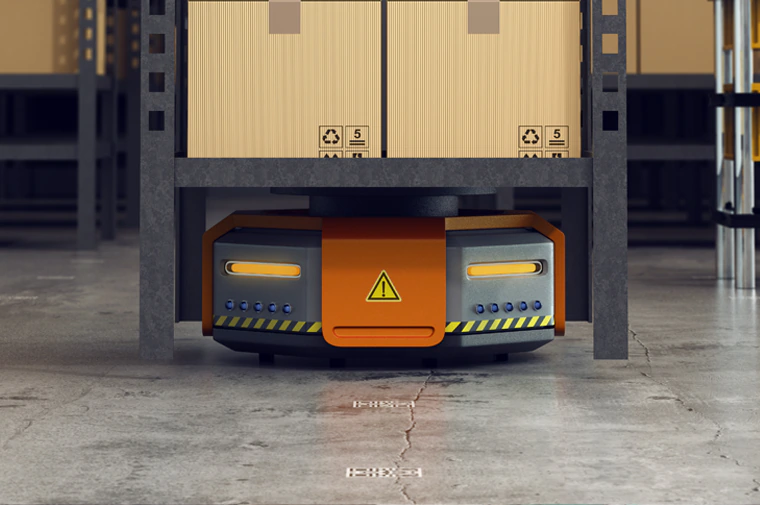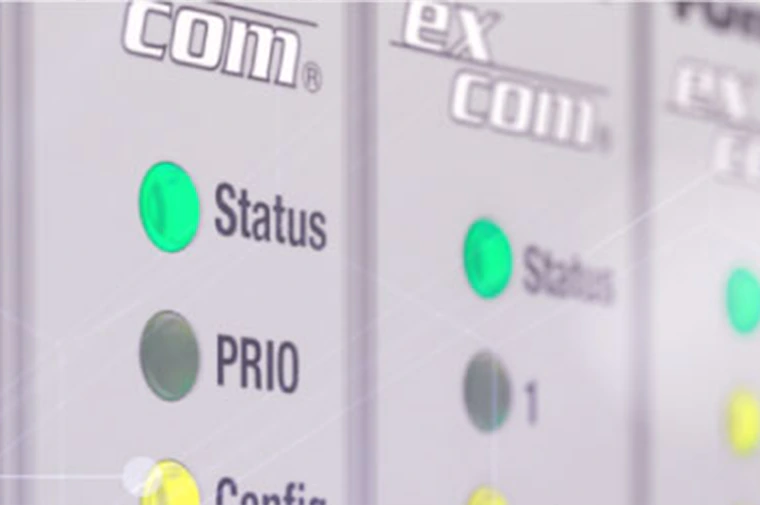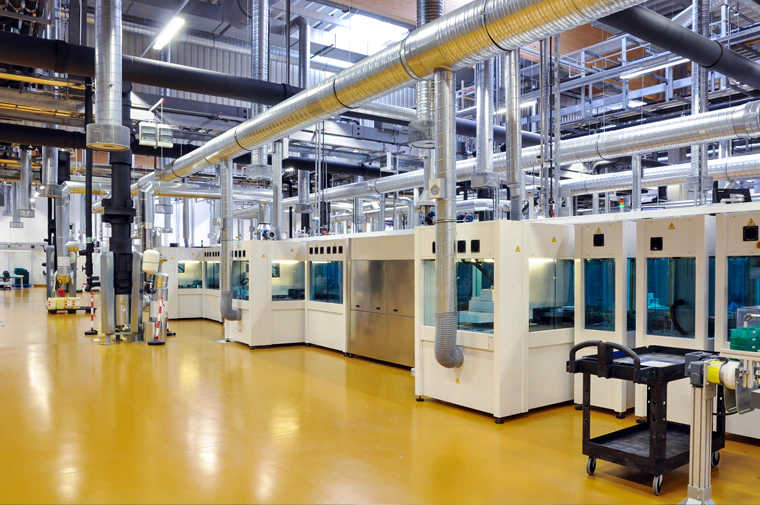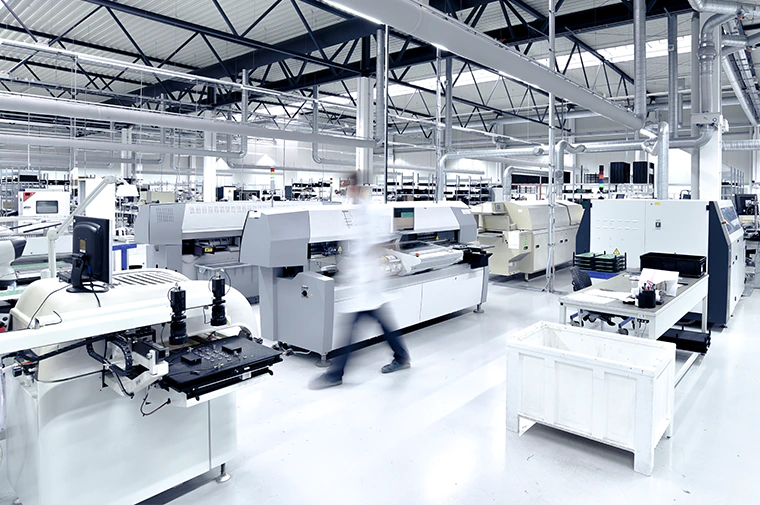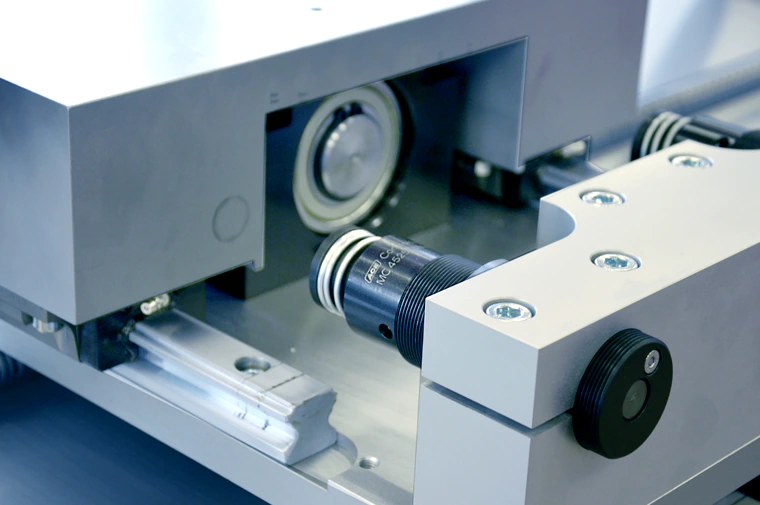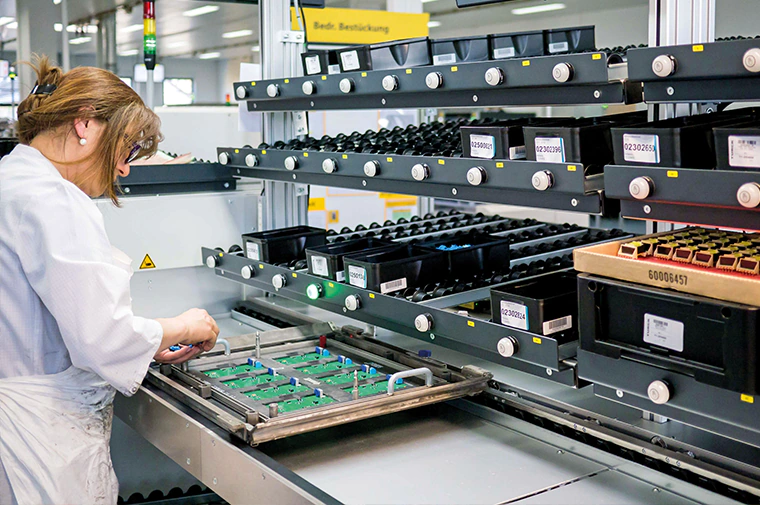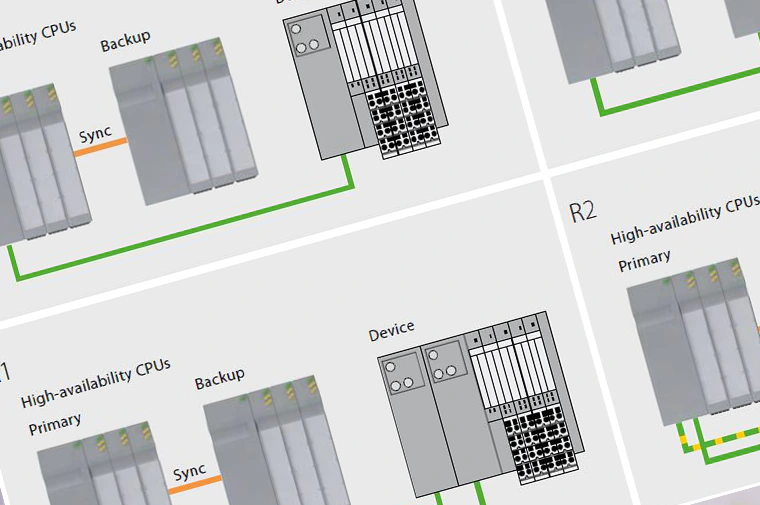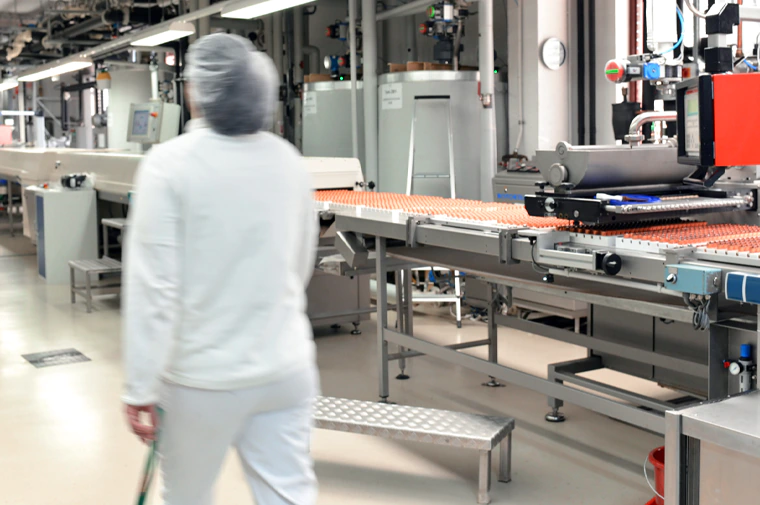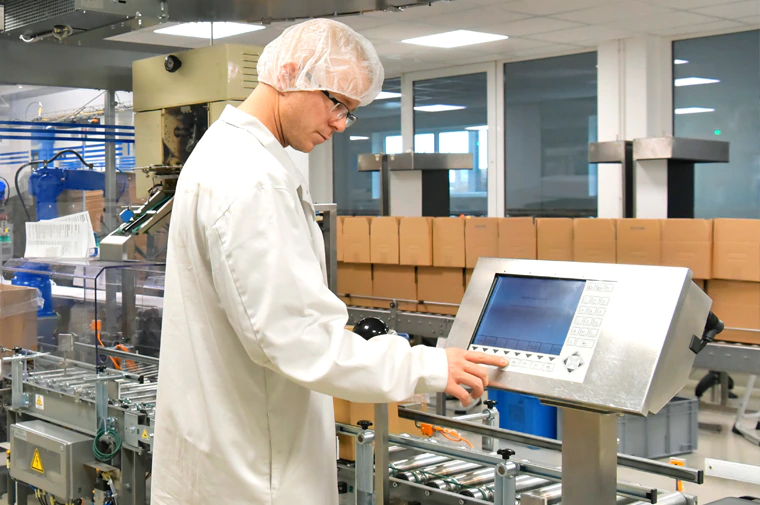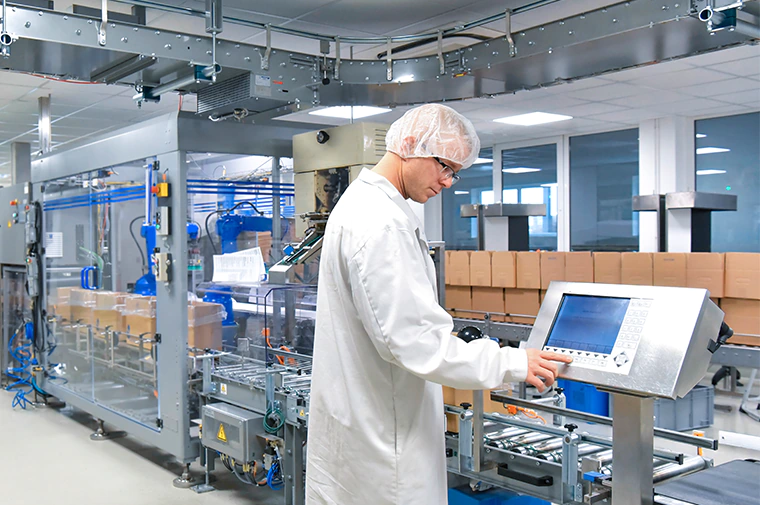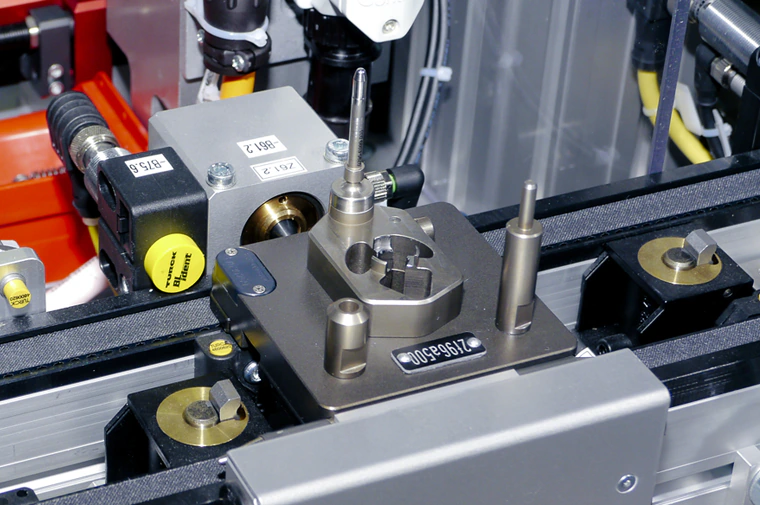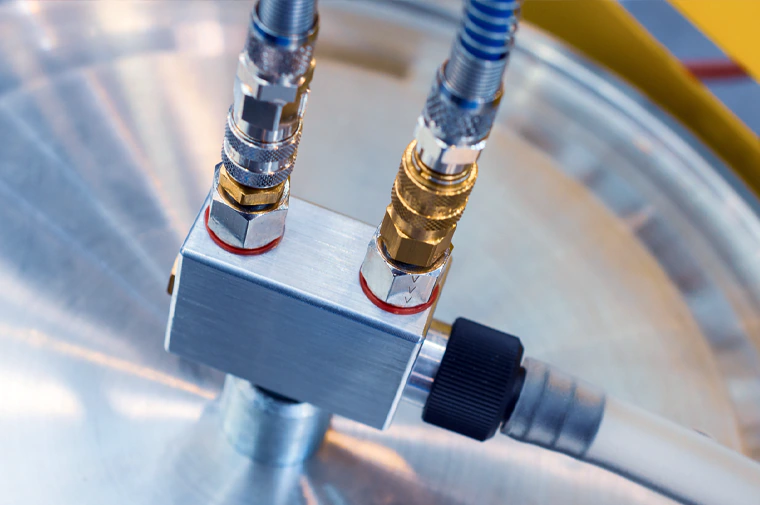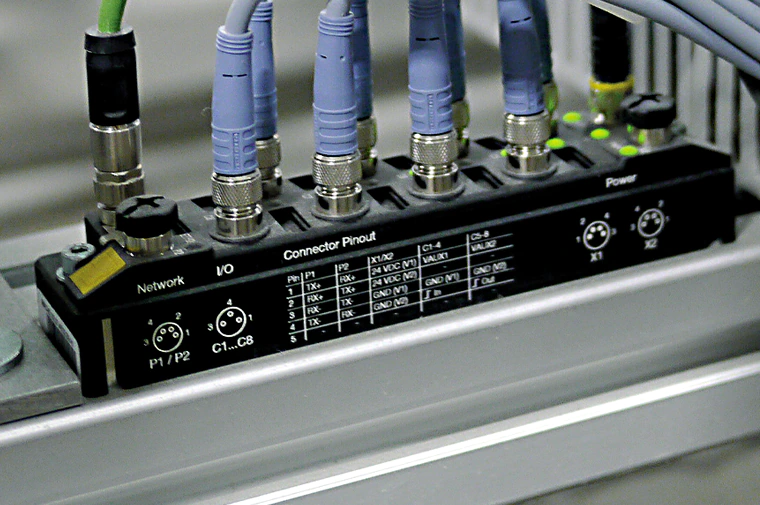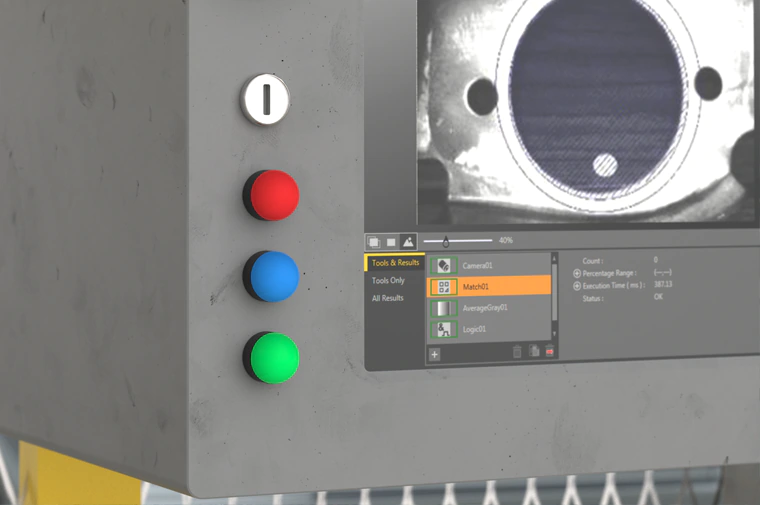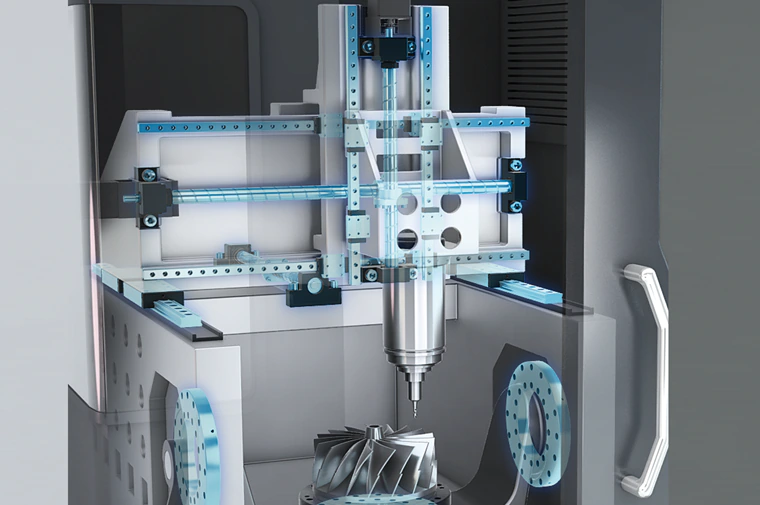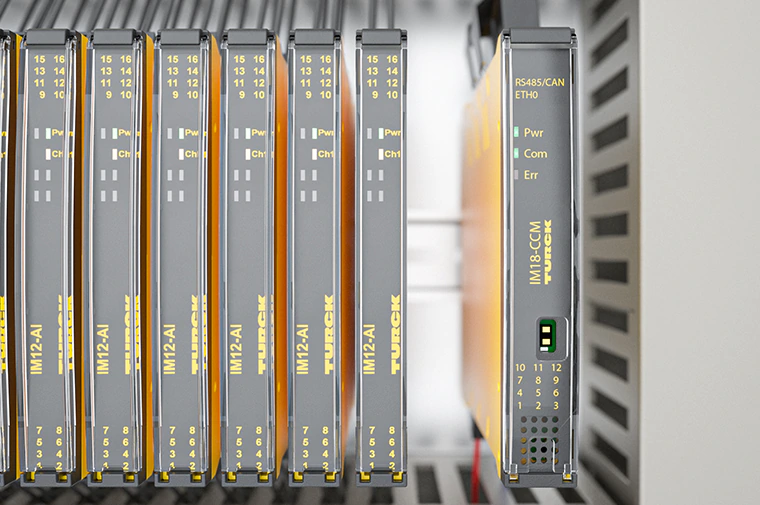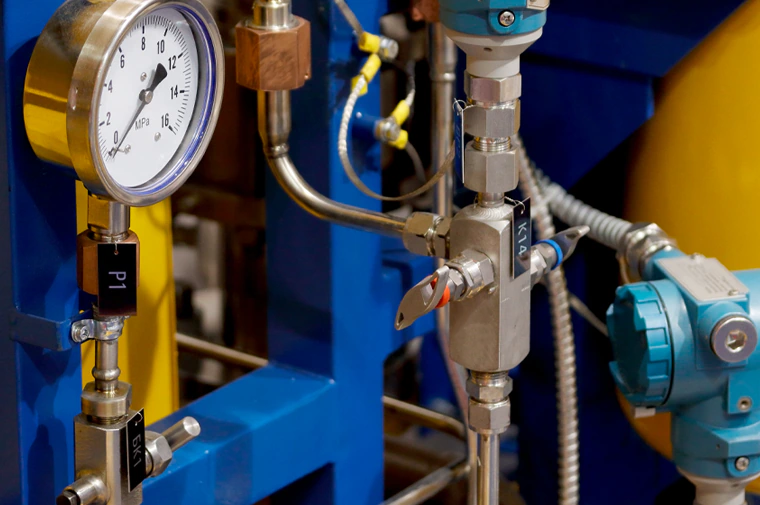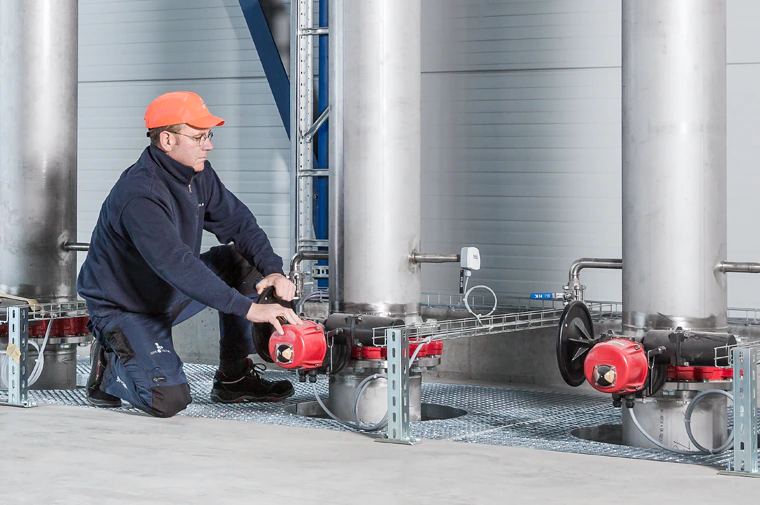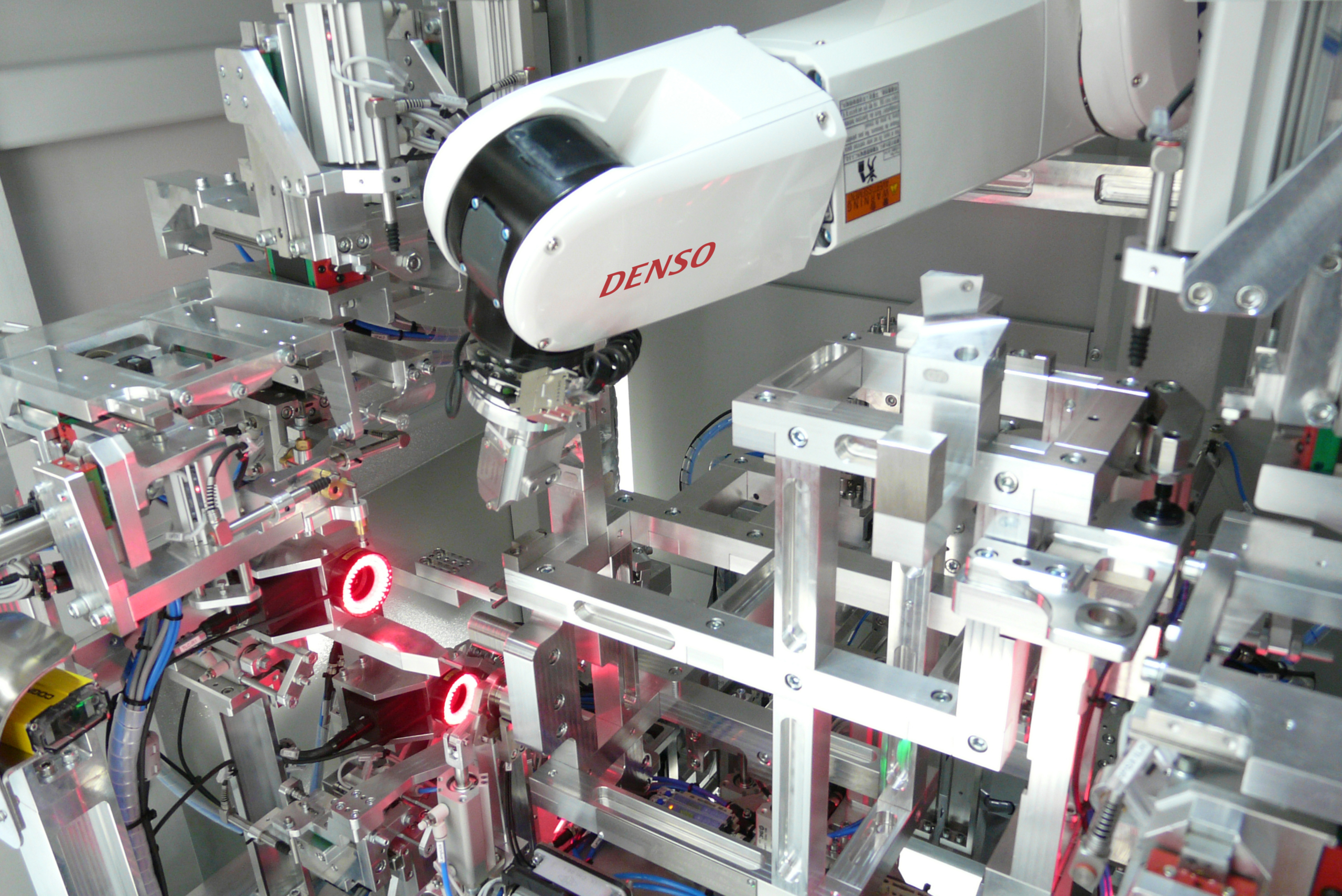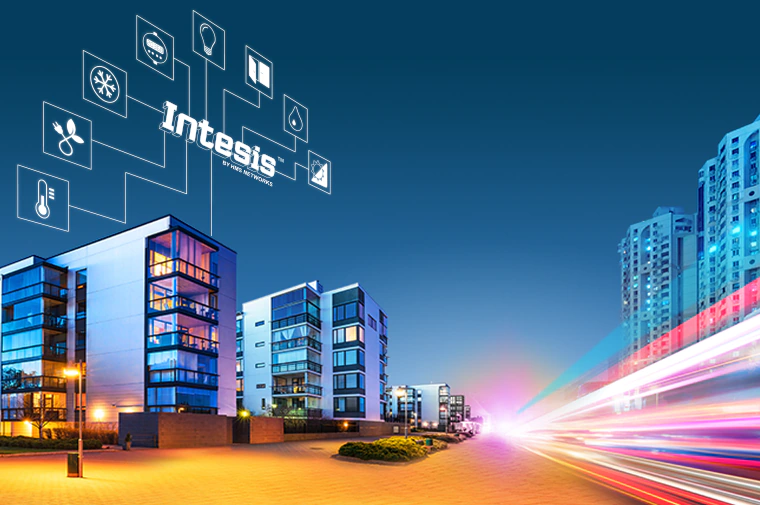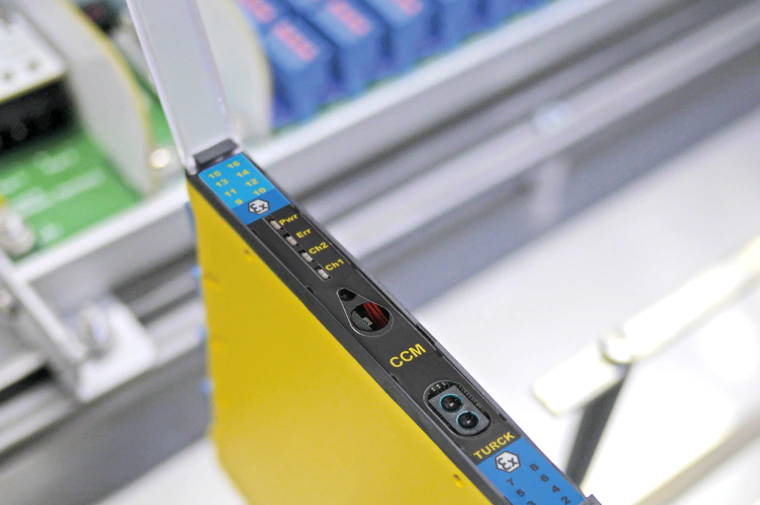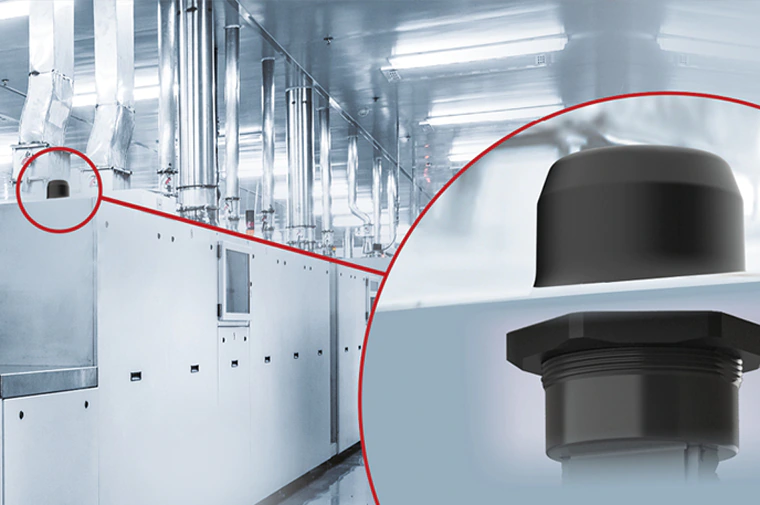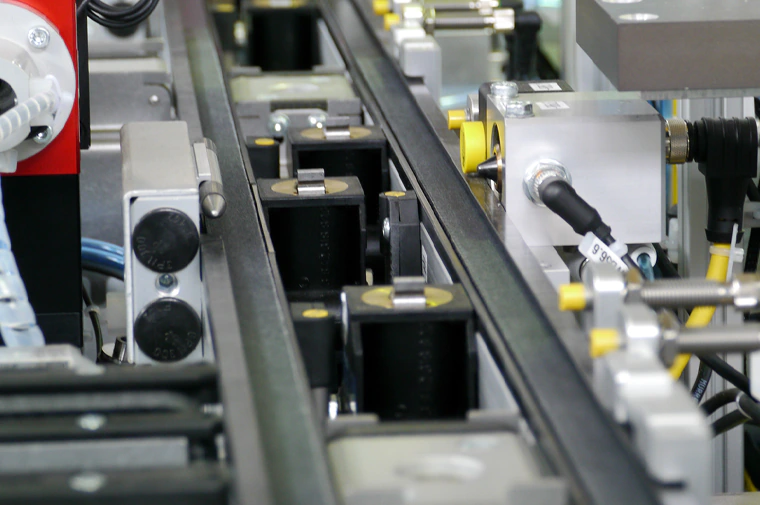
Home > Automation technology > Out into the field: CODESYS-3 controller TBEN-Lx-PLC from Turck
Out into the field: CODESYS-3 controller TBEN-Lx-PLC from Turck
Some machine manufacturers are still hesitant when it comes to relocating controllers into the field, even though the benefits of decentralization are very clear. The CODESYS-3 controller TBEN-Lx-PLC from Turck makes any concerns about moving controllers out of the control cabinet disappear. This compact, robust and flexible control concept is pointing the way into a future in which Industrie 4.0 reigns.
Nevertheless, control technology is mostly still to be found in the control cabinet. The trend towards decentralized I/Os and decentralized control concepts cannot be ignored, however. Amongst other things, it is being driven by modularization in mechanical and plant engineering. The striking thing is that more recently, these have also been making their presence felt in the creation of freestanding functionalities that are not only reusable but offer a variety of permutations.
Modularity and decentralization are the trends for the future
In an ideal world, the individual modules are only connected by a single wire that is used as a power supply and for communication alike. This simplifies the on-site commissioning process at the operator’s site, which has traditionally been costly and time-intensive. Many modules do not require a controller of their own and are capable of making do with passive I/O systems. Whether they have a controller of their own or not, modular control concepts are now signalling the end of the control cabinet in the medium term. This is where the TBEN-Lx-PLC controller with CODESYS-3 from Turck comes into its own.
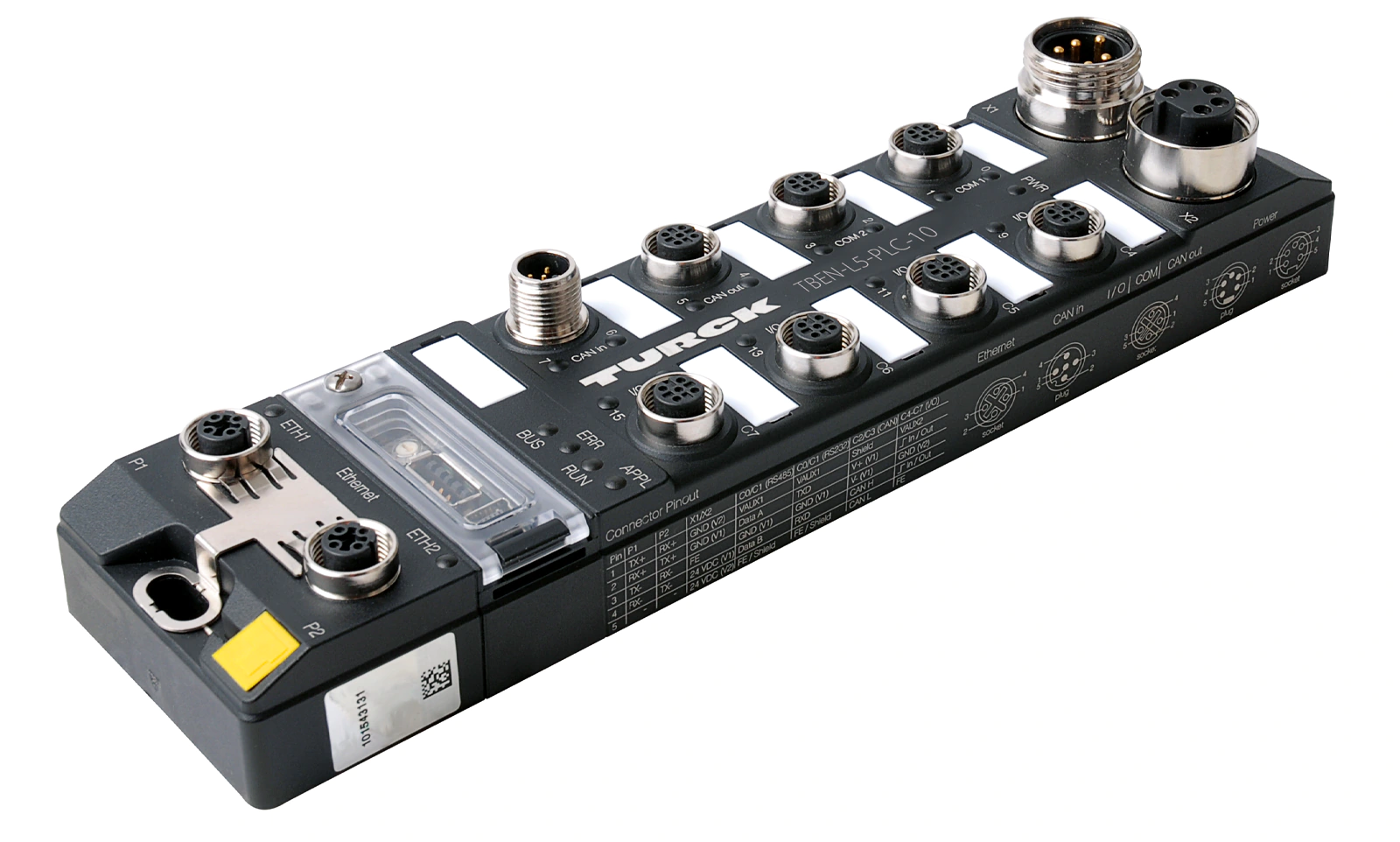
More rigorous operating conditions for PLCs
The compact and robust IP67-PLC is ideally suited for the realization of decentralized controls for small or modular machinery. What makes them suitable for hard use in the field are their fully cast housing, their probably unsurpassed temperature range of -40 to 70 °C and the fact that they are IP67/IP69K-rated. Thanks to the consistent integration of the automation within the machine and the pre-assembled cables, minimal cabling is required. The machine or system will be ready to operate in just a short time. Working in the control cabinet is a thing of the past and the probability of faults has been reduced to the absolute minimum.
A seamless range of interfaces
The TBEN-Lx-PLC-10 compact PLC stands out thanks to its unrivalled flexibility – its communication capabilities are practically without limits. As a master, it is equipped with all current interfaces, such as the PROFINET, EtherNet/IP™ and Modbus TCP industrial ethernet protocols. However, this PLC is also no stranger to Modbus RTU, CANopen and SAE J1939. What is more, RS232 and RS485 serial interfaces are available.
Sensors and actuators can be connected directly to the TBEN-Lx-PLC-10 via eight digital I/O channels. The PLC can also serve as a protocol converter, it can also be used in PROFINET, EtherNet/IP™ and Modbus TCP ethernet networks and in Modbus RTU and CANopen networks as a slave or device respectively. Here is an example of a typical application: in a system networked using PROFINET, the controller acts as a CANopen manager of a machine module connected to CANopen.
If you wish to free yourself from the confines of the control cabinet, the best solution is to contact the experts at Bachofen directly. They will guide you with commitment and expertise as you deploy your devices in the field.
Downloads
You can find more remote I/O systems in the online shop
Discover more products from Turck
Areas of application
-
Modular machinery and systems
-
I4.0 Control concepts
-
Multiprotocol applications
Highly qualified for deployment in the field
-
A robust IP67/IP69K compact controller in the I/O block form factor
-
A broad temperature range (-40 to 70 °C)
-
A simple CODESYS IEC 61131-3 programming platform that is free to use
-
Many onboard communications interfaces
-
Able to work with many protocols (multi-protocol: PROFINET, EtherNet/IP™ and Modbus TCP)
Other focus topics in the area of equipment, machines, installations and machine tools
Lights that speak: the new WLS27 pro-lights from Banner
When monitoring machinery, processes, actions or user behaviour, speed and clarity are paramount. The most efficient medium for these purposes is light. With its new WLS27 Pro-lights that are...
Wireless vehicle identification: miniature guardians
Installing sensors for vehicle identification doesn’t have to mean digging trenches and laying cabling. Banner’s wireless alarms are smaller than a hockey puck, can be sunk into the floor...
Visionary capabilities: predictive maintenance from Banner
Once machines start to vibrate, production can stall or come to a complete standstill and the costs resulting from downtime can take on astronomical proportions. Predictive maintenance using a...
Out into the field: CODESYS-3 controller TBEN-Lx-PLC from Turck
Some machine manufacturers are still hesitant when it comes to relocating controllers into the field, even though the benefits of decentralization are very clear. The CODESYS-3 controller TBEN-Lx-PLC from...
Turck Ethernet Gateway for excom: make way for ethernet in the ex zone
The use of Ethernet in EX zones within the process industry was previously impossible due to safety issues. But now Turck has made a breakthrough with its GEN-3G Ethernet...
One IP address for an entire sub-network: all thanks to beep from Turck
With the TBEN-S, TBEN-L and FEN20 fieldbus modules, Turck is opening up new possibilities for machine and plant manufacturers. Each device on a network can be reached via an...
Tiny but mighty: the new HRG miniature roller guide from THK
A linear guide should take up minimal space but also deliver maximum performance. This contradiction inevitably leads to compromises when evaluating the options. But this is now a thing...
Solutions and expertise to meet your needs: Bachofen Engineering
As a rule, manufacturers come under a lot of pressure in terms of time, costs and innovations. And on top of that, they are faced with consistently high customer...
Shining a light on assembly processes: the pick-to-light solution from Banner
Making mistakes is human. Even the most reliable employee can make mistakes during commissioning and those mistakes can cause the installation process to stall, affecting productivity. Using a Pick-to-Light...
Profinet gains a foothold in process automation: S2 system redundancy now with IP67 and IP69K protection
Profinet has established itself as the communications standard for factory automation. Vehicle manufacturers and suppliers have been demonstrating the practical suitability of industrial Ethernet-based data exchange for a number...
Product identification: no cakewalk in the food industry
An identification system’s true value becomes most apparent when it is subjected to demanding general conditions. These are particularly challenging in the food industry. Due to its resistant properties,...
Product identification with “all-in-one RFID”: the new PD67 RFID handheld from Turck
In the field of medicines and pharmaceuticals, it is a mandatory legal requirement for products to be identified and for all of the manufacturing and processing to be traceable....
Procurement made easy: Bachofen safety technology from a single source
There are many aspects to the safety of machines, plant and vehicles. However, designers and operators have more important things to do than be setting up an evaluation process...
Prime example for industry 4.0: the machine thinks along with you
Is the tool suitable for the next processing step and when is the next service due? This information is crucial for ensuring that manufacturing runs smoothly with no long...
Prevention is better: monitoring using the Edge Gateway from Turck
Many operating faults in machinery and systems go undetected until the process itself starts to falter. If the operation was permanently monitored, any functional faults that were about to...
Pharmaceutical production: no opportunity for pirates
Fake is on the advance. Even the pharmaceutical industry has to fight against copies and counterfeits. One effective measure is seamless product identification across the entire production and distribution...
Diversity and quality combined: Parker Rectus connection technology
Need to disconnect fluid connections quickly, cleanly and without any tools? Then look no further than the Rectus couplings from Parker. Parker has the right coupling for every conceivable...
Out of the control box: towards decentralised concepts
In the world of Industry 4.0, modularity is gaining increasing importance in the manufacture of machinery and systems. This development is also promoting the decentralisation of I/Os and control...
Optical sensor: green light for LED
Machine are carrying out increasingly complex functions and are increasingly networked, reflecting Industry 4.0. This also results in higher demands on the optical sensors. The future lies in LED...
On the move at high speed: the new BSM ball screw from THK
When speed is required, conventional ball screws quickly reach their limits. Traditional types have a DN value of between 60,000 and 120,000. THK’s new BSM ball screw exceeds these...
No risks in the control cabinet: the IM18-CCM control cabinet motor from Turck
Unplanned machine and system downtimes are a costly irritation for producers in the food, beverage and pharmaceutical industries. The cause can often be found in the control cabinet, which...
Eagle eyes in the compressed air network: flow sensors from EGE
Compressed air is expensive. One cubic meter can easily cost 10 to 20 Swiss centimes. Too much to waste. Flow sensors from EGE with IO Link display leakages immediately...
Moving securely ahead into the future of cloud computing: data transfer using the edge gateway from Turck
Industry 4.0 is entirely dominated by the cloud, however the massive potential offered by these types of technology is still far from being exhausted. The key when it comes...
Modbus-compatible and networked: electric actuators from Valpes
The ability of measurement and control systems to communicate is of central importance to the safe operation of systems. Electric actuators from Valpes can be configured and controlled using...
Manpower: too good for repetition and routine
High-performance machine guarantee a high level of productivity thanks to efficient production. This is compromised if an operating person is required to load and unload the machine. DENSO robots...
Linking factory and building automation: Intesis gateways from HMS Networks
There used to be a deep divide between information technology and operation technology. This was also a problem for building services, where automation is progressing in leaps and bounds....
Pushing in fast beats screwing in slowly: Carstick+ push-to-connect cartridge from Parker
Finding space- and time-saving solutions is becoming increasingly important in equipment manufacturing. This applies to all areas of the process. Parker has enhanced the Carstick® push-in cartridge for the...
IP protection for peace of mind: monitoring in the control cabinet
The heart of IT systems lies in the control cabinet. This means that it is even more important to ensure that it is protected against physical influences such as...
Interference-free wireless: say goodbye to interference
Wireless networking is a key element of Industry 4.0. It is, however, difficult to implement in industrial environments. Until now, interference and long distances have affected the wireless transfer...
Distance yourself from mediocrity: the Turck uprox® 3 factor 1 sensors
Inductive sensors, for applications in special machine engineering and other demanding fields, should ideally have high switching distances, be compact and form a key element for reliable machine and...

